Assassin's Creed Origins Xbox One review: This is how you revive a franchise
Assassin's Creed Origins offers a relentless level of depth in its world and surrounding systems, marking a bold return for the series.

All the latest news, reviews, and guides for Windows and Xbox diehards.
You are now subscribed
Your newsletter sign-up was successful
As of November 2017 the Assassin's Creed franchise celebrates its tenth anniversary, and in that time, the series has come a long way. Spanning the Third Crusade, Renaissance, Golden Age of Piracy and most recently Victorian London, the Assassin's Creed is a franchise that explores history like no other. Few games have managed to deliver a blend of history and storytelling – all while remaining appealing in an industry with action-packed gameplay.
Assassin's Creed Origins is the latest entry in the series serving as a major shake-up for the franchise, while also turning point in many ways. With two years having passed since the release of Assassin's Creed Syndicate, following a period where the series' traction declined to an all-time low, Origins is a bold return to the franchise with a reworked approach. The hiatus has not only meant a longer development cycle – core mechanics had to be reworked, without compromising on the scale and depth of the experience. Shifting away from the increasing stagnating almost-yearly format, Origins strives to attempt so much more than its predecessors while succeeding in almost every way.
A fresh take on history
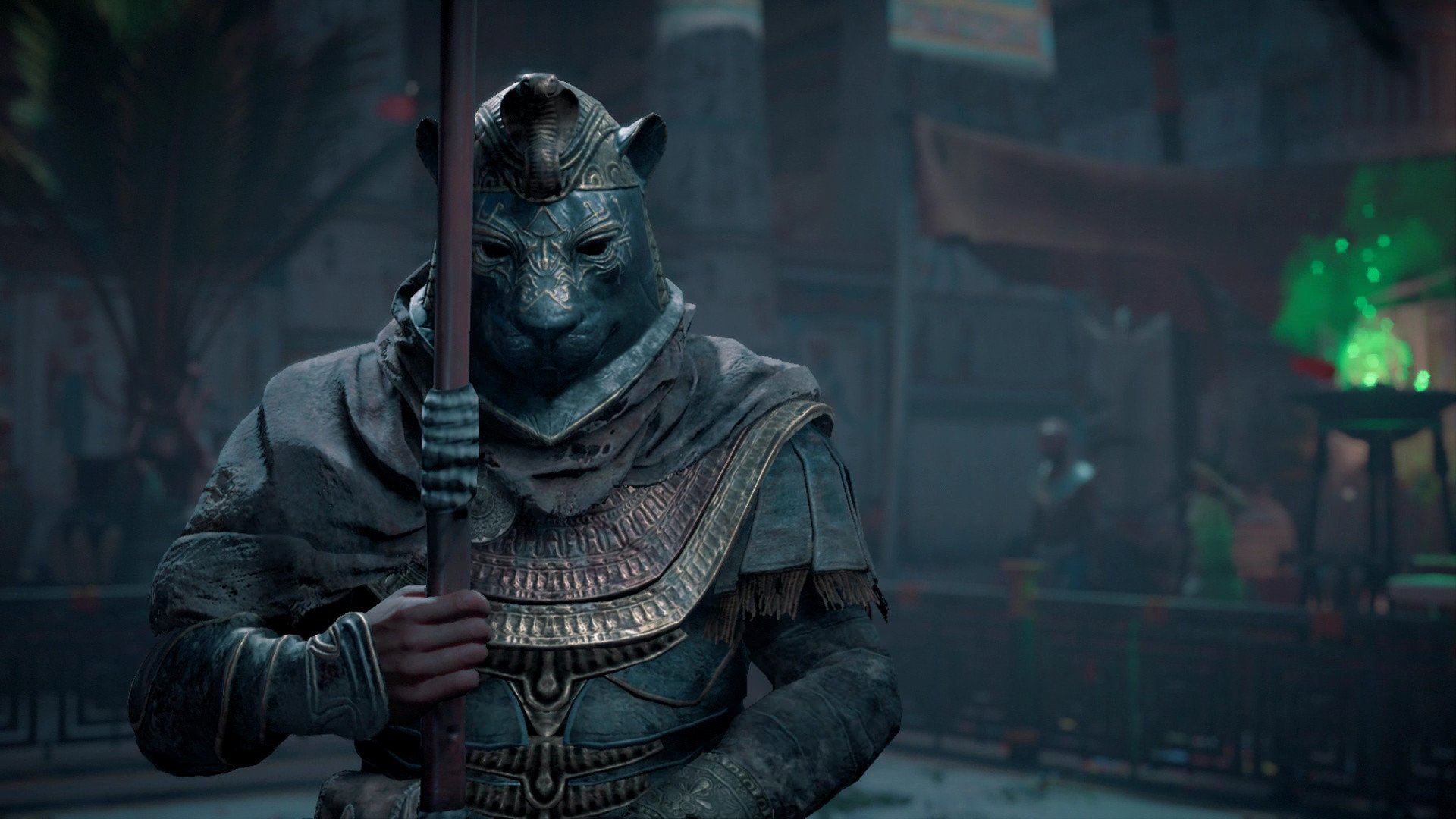
Assassin's Creed is a franchise now defined by its legacy, with a deep backstory spanning a range of locations over different periods. Built around its characters, the game's universe has been interwoven between a varied cast of protagonists and foes, while contributing to a central narrative of the Assassin Brotherhood and conflicts with Templars. In many ways Origins establishes itself away from these roots, building a more independent narrative backed by a new period and cast of characters. And while still laying the foundations of the Assassins and adding deeper context to a pre-established world, this makes for a fresher take than the previous series entries.
Assassin's Creed Origins takes the franchise all the way back to ancient Egypt – an earlier period in human civilization that offers a clean palette for its open world. At a time of tension in the region where Ptolemy has risen to power, Egypt is now being held down by an oppressive regime. During Cleopatra's climb to the throne, Origins' world, like previous games, is rooted in political friction.
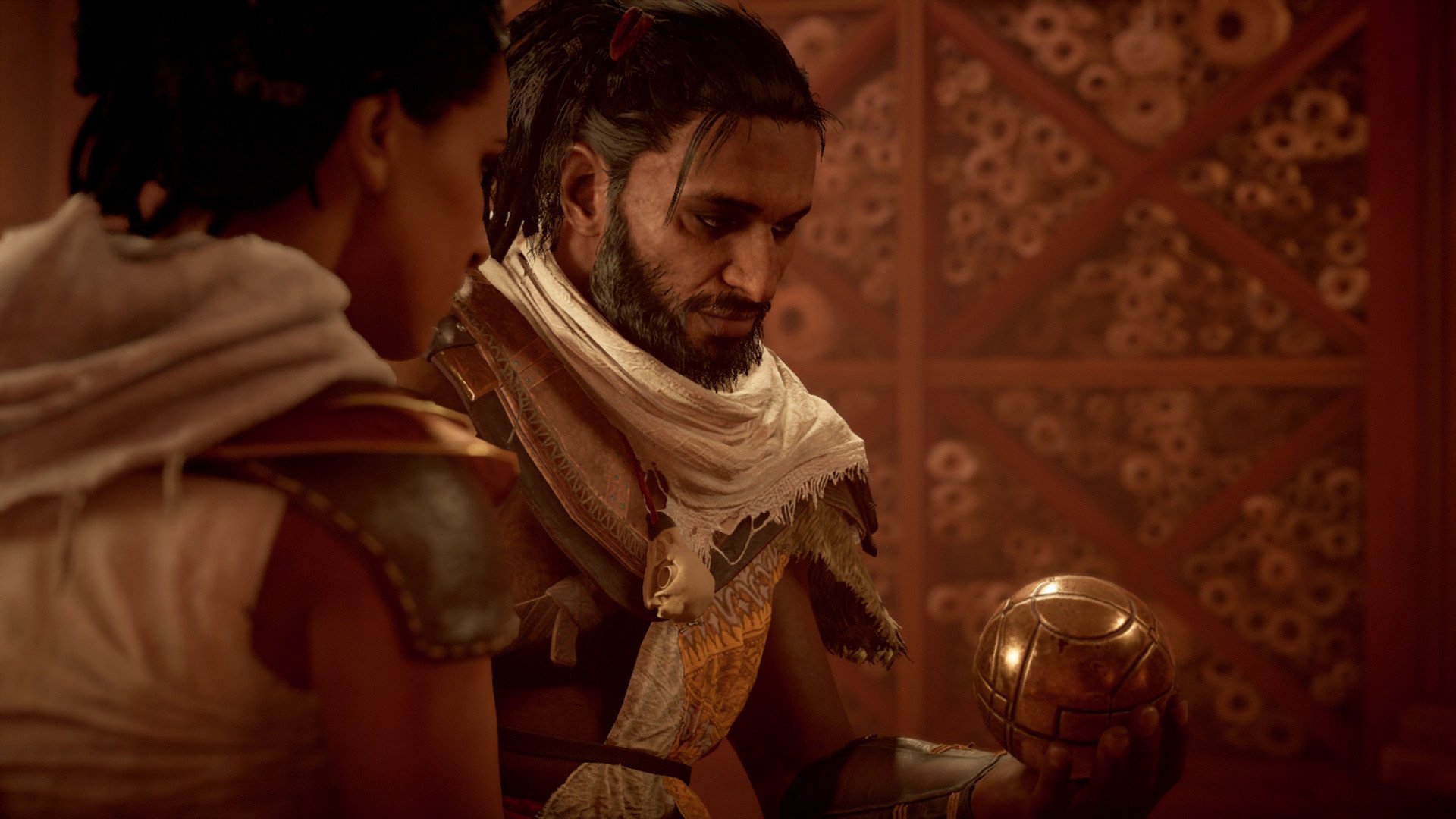
Players will take on the role of a "Medjay" named Bayek, the last of his kind sworn to protect the pharaoh and their kingdom. Bayek, among an extensive cast of characters, stands out as one of the most charismatic in the series, with genuine relationships that are not only expressed through the main story, but also additional side quests.
With the move to ancient Egypt, the world of Assassin's Creed Origins feels more intriguing than ever. This setting also makes for a shift in themes, exploring concepts previously off-limits to Assassin's Creed games. In a period where mysticism played a more direct role in society, Origins isn't afraid to touch on mythical concepts straying away from realism. Culture has been defined by serving the gods and ensuring a safe passage into the afterlife, with worship, hierarchy and death and the surrounding conflicts all feeding into society. While Assassin's Creed Origins may distance itself further from history than its earlier games, these changes introduce some interesting aspects to the narrative.
For the journey, not the destination
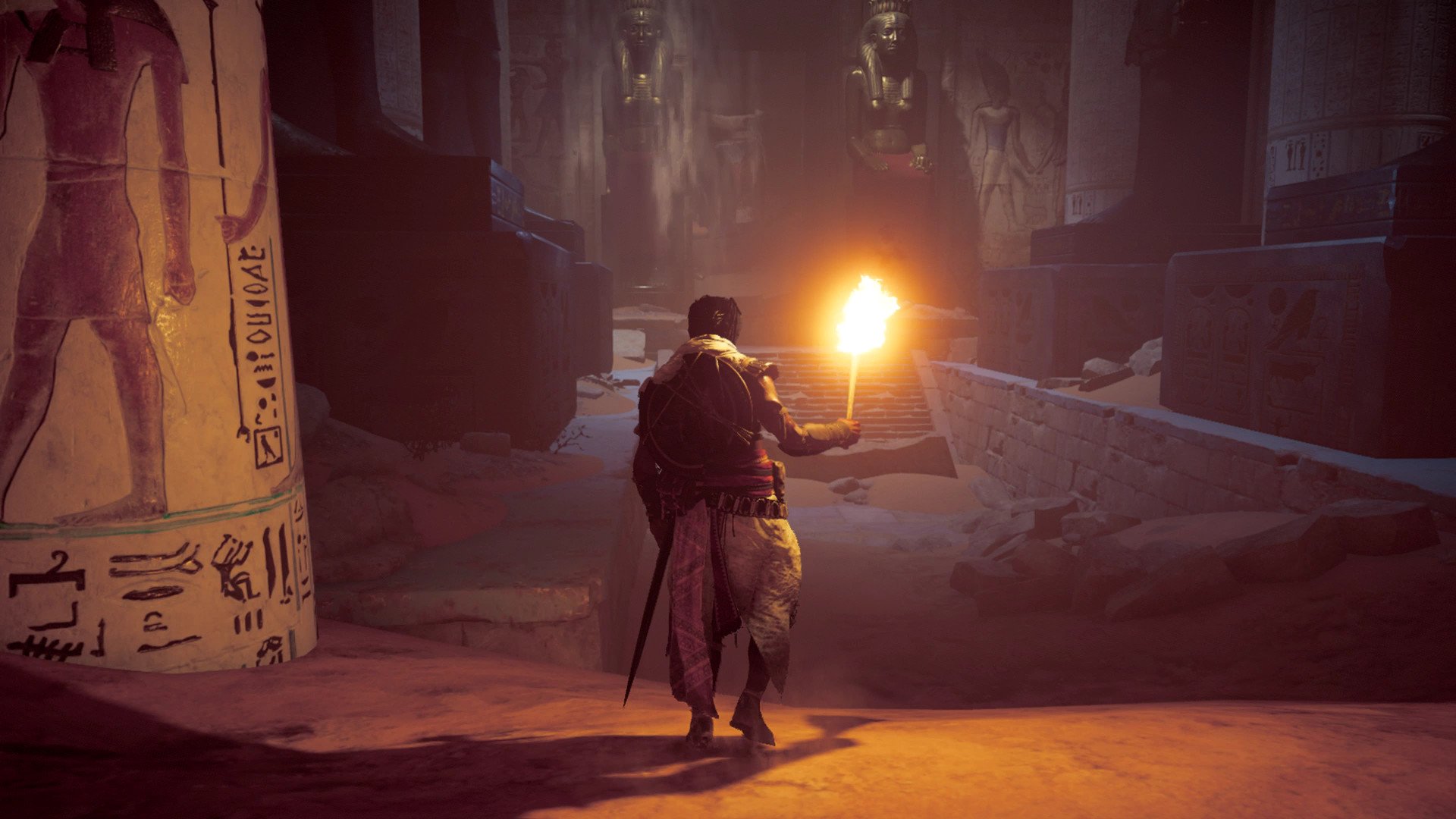
The Assassin's Creed series has always excelled for its worlds, but few manage to capture the scope and depth offered by Origins. Egypt serves as a fresh new locale for the series, exploring a setting often left untouched by AAA video games.
All the latest news, reviews, and guides for Windows and Xbox diehards.
Ubisoft has established a world I genuinely look forward to returning to and exploring.
The sense of presence offered by Origins' take on Egypt is staggering, with a game world of an overwhelming size. This has become a staple of Ubisoft's big-budget open world titles over the years, however, unlike many of its previous titles, Assassin's Creed Origins manages to maintain depth and curation in the process. While some previous games from the publisher have felt large yet barren, from the obscure alleyways to the expansive plains, Origin shows attention to detail throughout its world.
Origins also achieves something rare, albeit welcome, from an open world game of today – an incentive to explore off the beaten path. The profundity of its world ensures you'll find something by exploring, rewarding players with small details and further depth to the world. While the XP rewards and other elements of progression are welcome, the experiences that you'll encounter are what makes these moments so special. Whether sprinting through the empty desert to stumble upon a convoy of camels or finding a secret hideout among the caves, Ubisoft has established a world I genuinely look forward to returning to and exploring.
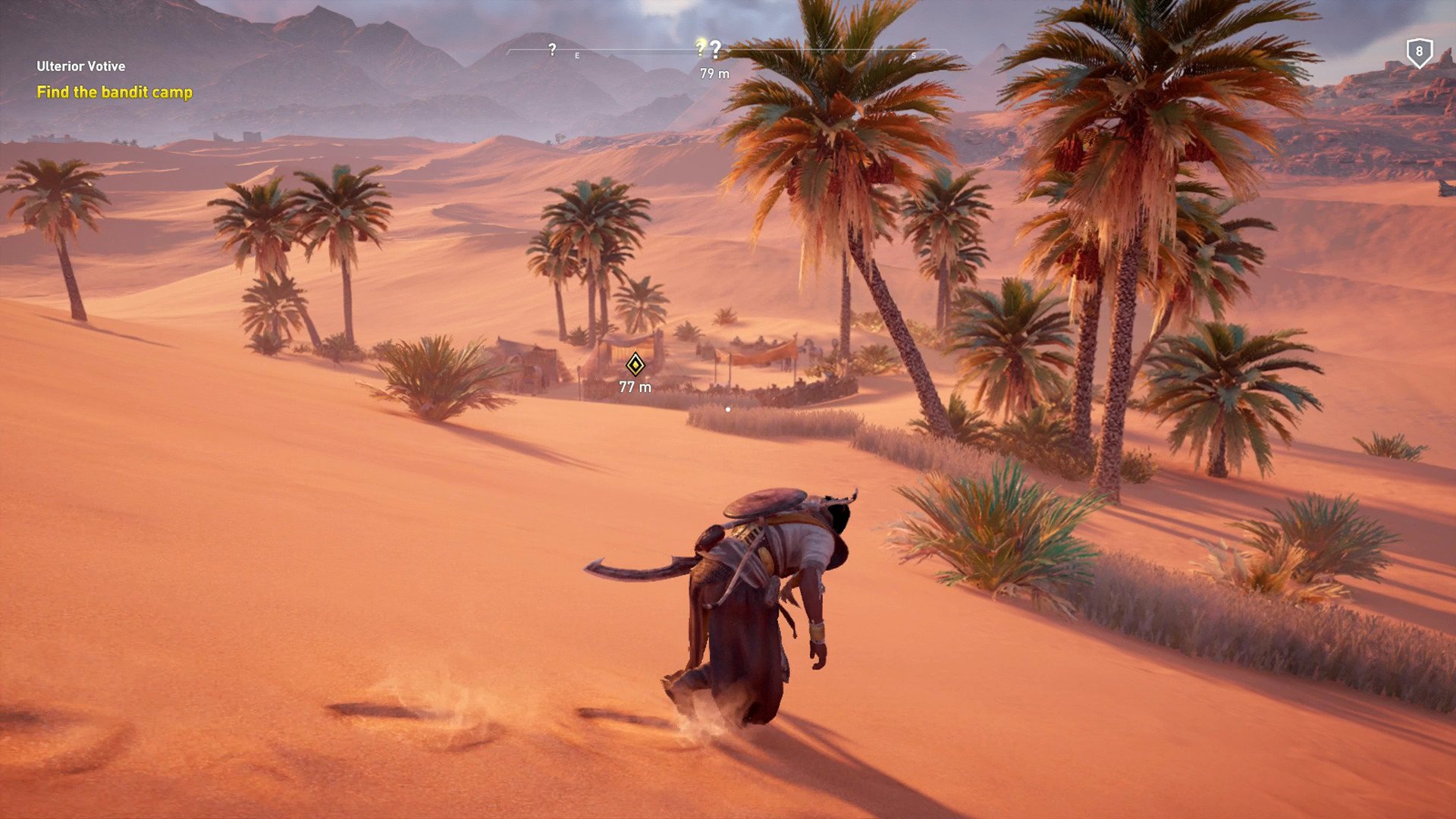
Assassin's Creed Origins also delivers some changes to combat systems upon its predecessors, shifting away from existing systems in favor a more free-form approach. Taking a common approach in many action-based RPGs, the flow of combat now gives more precision and flexibility to the player, with a new hit-box based system.
Camera controls and player movement play a much more significant role in combat, with a heavier bearing on your targeting. Using a combination of light attacks, heavy attacks, blocks and parries, Origins grants a much more skill-oriented system, which often feels much more consistent and rewarding in one-on-one encounters. On the other hand, large-scale battles are much more punishing and harder to manage.
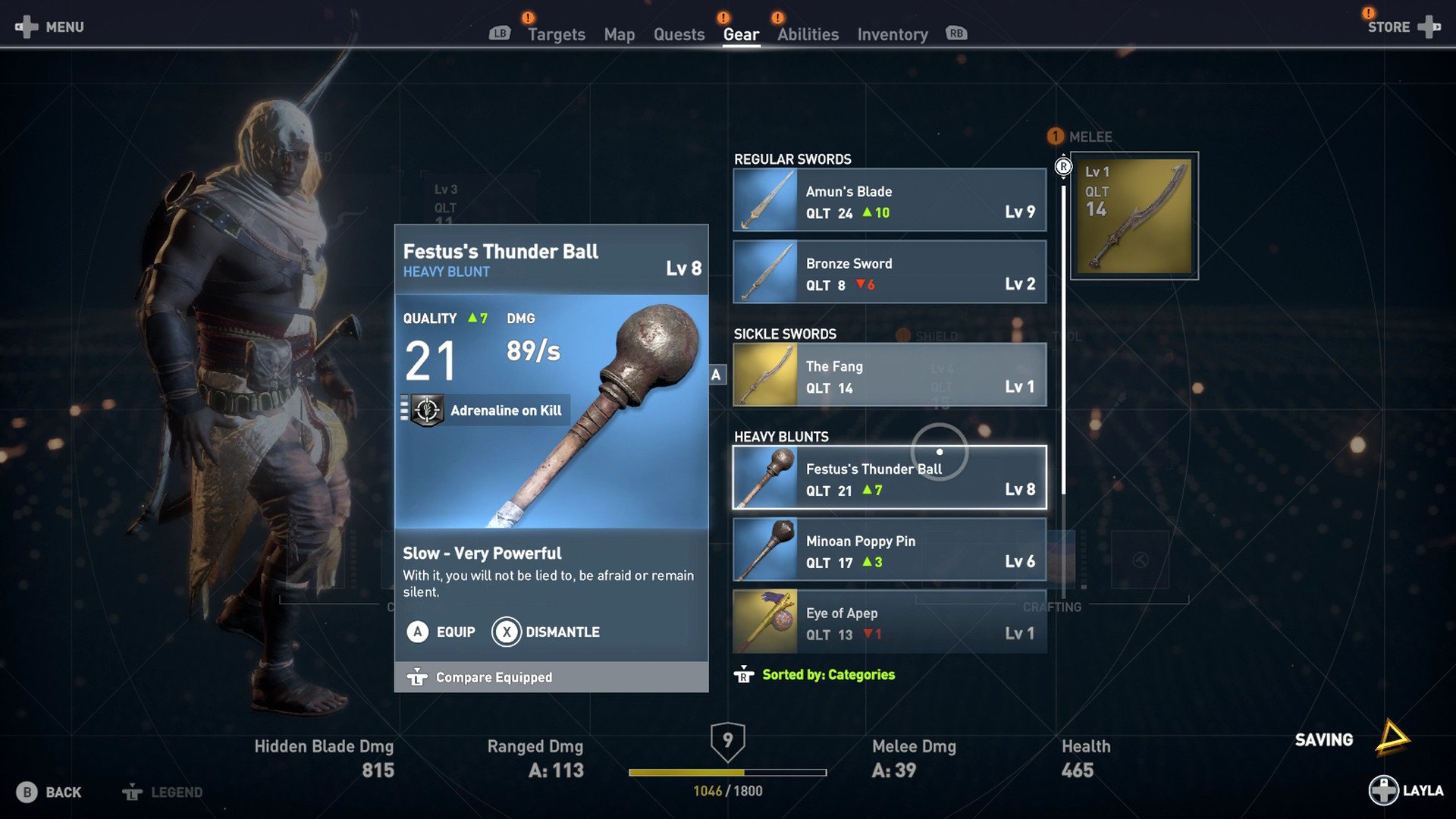
The main loop of progression in the Assassin's Creed franchise makes its return to Origins, setting players free in the world with a variety of missions to uncover and complete. Main quest lines deliver the most curated experience to build on the overarching narrative, while side missions are available in a much shorter form, offering their own isolated stories. These, alongside other activities, earn XP which contributes to the leveling of your character.
While our time with pre-release versions of the Xbox One X version has been brief, this is clearly the best way of experiencing the game.
The progression systems behind Assassin's Creed Origins have been reworked for greater depth, incorporating extensive RPG elements into the experience. XP from quests, exploration, and combat all still contribute to the leveling system, which in turn, grants players with skill points. Levels and areas are now tagged with their own recommended levels scaling by difficulty, which encourages players to level and progress before venturing into new territory. This gives a much more compelling reason to complete side quests and explore, in order to continue the main narrative. Staggering the rollout of content in this way also prevents an overwhelming number of activities, which felt more apparent in earlier Assassin's Creed games.
A new loot system has also been implemented, alongside a larger pool of weapons to use as a player. Weapons are now equipped with one of three tiers of rarity, similarly to many recent titles, each with differing stats and values to consider. Over the course of the game, you'll loot new weapons, which are added to your inventory in their respective weapon category. To maintain high stats, especially in earlier hours of the game, players are encouraged to switch between weapons frequently for an advantage in combat.
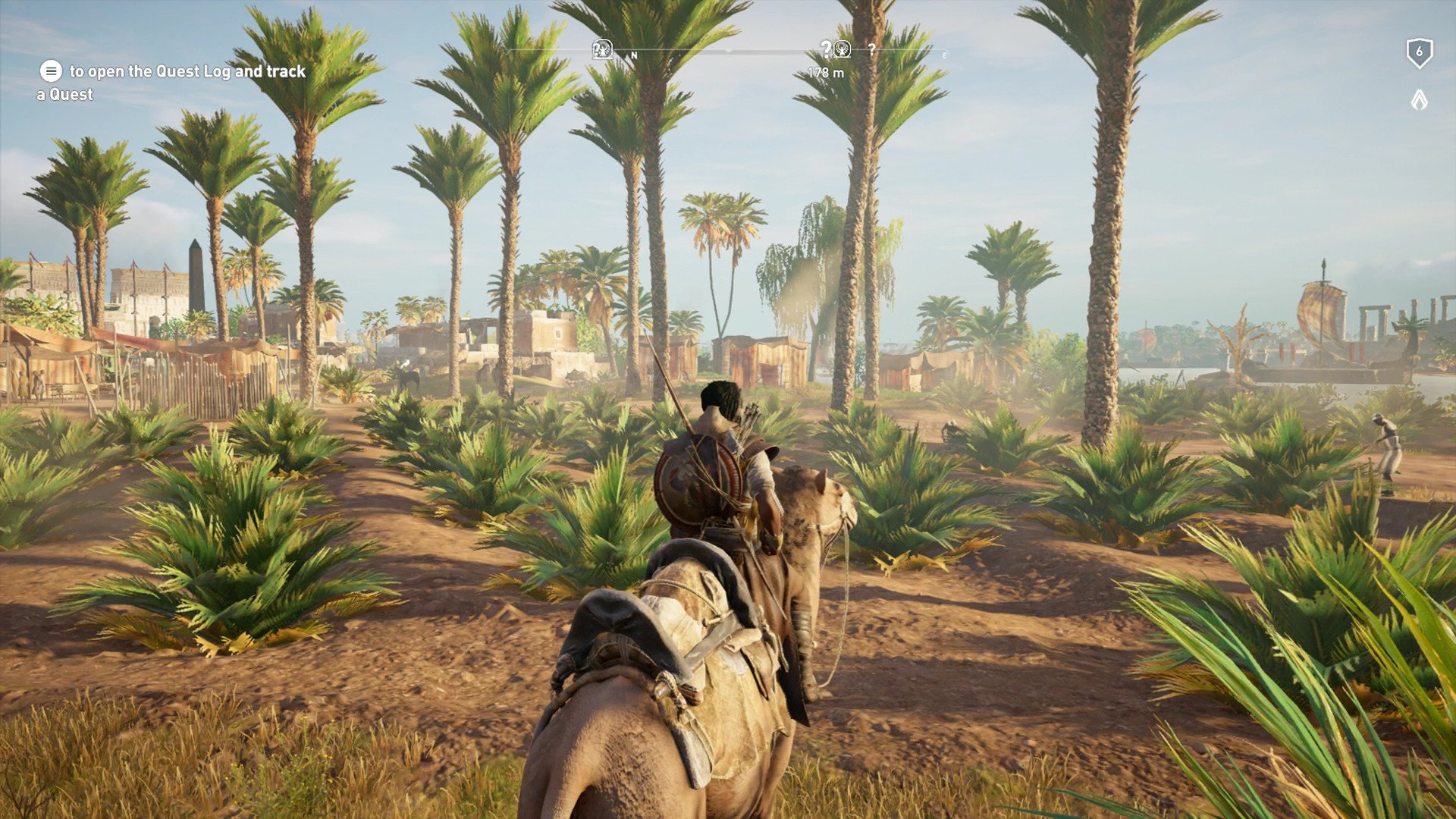
Although I welcome the detail and scope of Assassin's Creed Origin's world, the full experience has clearly been built with the Xbox One X in mind. Both 4K resolution and High Dynamic Range are offered on Xbox One X, while on standard Xbox One hardware, a drop in both resolution and texture quality can be seen. While our time with pre-release versions of the Xbox One X version has been brief, this is clearly the best way of experiencing the game. After experiencing what both consoles are capable of, it's hard to return to a lower resolution, which results in muddier textures and a general lack of clarity. That's not to say Assassin's Creed Origins can't be enjoyed on standard Xbox One consoles, although its Xbox One X upgrades are clear.
In conclusion
Assassin's Creed Origins is a return to form for the franchise, delivering some true iterations upon the formula for this latest installments. After a two-year hiatus, the latest adventure is one full of intrigue, delivering an appealing world which cries out to be explored. With a strong narrative that stands on its own, Origins is a game not only for series fans but a great starting point for newcomers.
Pros:
- Inviting open world packed with depth
- Welcome improvements to combat
- Strong cast of characters
Cons:
- Struggles visually on standard Xbox One hardware
This review was conducted on Xbox One using a copy provided by the publisher.

Matt Brown was formerly a Windows Central's Senior Editor, Xbox & PC, at Future. Following over seven years of professional consumer technology and gaming coverage, he’s focused on the world of Microsoft's gaming efforts. You can follow him on Twitter @mattjbrown.
